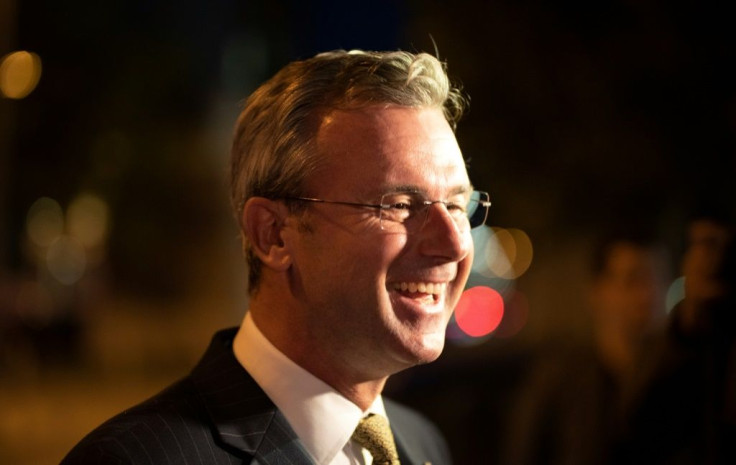Austrian Far-right Freedom Party Dogged By Nazi Past

A return of Austria's far-right Freedom Party (FPOe) to government is seen as likely after Sunday's parliamentary elections, highlighting once again the party's chequered history.
Earlier this month, Norbert Hofer was formally elected as party leader, succeeding former vice-chancellor Heinz-Christian Strache who was brought down in a spectacular corruption scandal.
Founded by ex-Nazis
The FPOe was created in 1956 by former members of the Nazi party and its first two leaders were former Waffen SS officers.
The party later had pan-German and more liberal currents, which came to the fore in the early 1980s.
This enabled the party to go into government with the centre-left Social Democrats (SPOe) between 1983 and 1986.
But the Nazi part of its heritage was never far from view.
In 1986, the mercurial Joerg Haider took the helm and began attracting international notoriety, long before the rise of the far-right elsewhere in Europe.
His strident message and xenophobic slogans grabbed attention, one of the most infamous examples coming when he praised the employment policies of the Third Reich.
International opprobrium
In the national elections in 2000, the party soared to a 26.9 percent vote share.
Centre-right leader Wolfgang Schuessel decided to go into coalition with the FPOe, sparking international opprobrium and unprecedented sanctions from EU members.
But internal rifts started to tear the party apart and the FPOe plummeted in later polls.
Haider formed a new party but his time in politics was cut short when he died in a car accident in 2008.
Strache took the helm of a much diminished party in 2005 and set about putting it on the road of recovery.
'Isolated cases'
The party made a comeback over the next decade, winning 46.2 percent of the vote in 2016 presidential polls -- the party's best ever performance in an election -- with a more conciliatory message.
The FPOe's resurgence was capped by its re-entry into government in 2017 under centre-right Chancellor Sebastian Kurz, gaining the coveted interior and foreign ministries for the first time.
But the far-right's latest outing in government was dogged by a near-constant stream of "isolated cases" of racist or pro-Nazi statements emanating from party members.
Another notorious faux pas came when the FPOe-nominated foreign minister was seen waltzing with Russian President Vladimir Putin at her wedding, an embarrassing reminder of the party's links to the Kremlin, while Interior Minister Herbert Kickl was accused of undermining the rule of law.
'Ibiza-gate'
The party's time in government was finally brought to an end by the spectacular "Ibiza-gate" corruption scandal on the eve of European elections in May.
Two German newspapers published extracts from sensational hidden camera footage recorded in 2017 on the Spanish holiday island.
In the tape Strache was seen apparently offering public contracts in return for campaign help from a woman he was led to believe was the niece of a Russian oligarch, suggesting to her that she could take control of Austria's biggest tabloid.
Strache resigned in disgrace with Hofer taking over.
The Strache family has not quit politics though -- rumours abound that Heinz-Christian may make an attempt to become mayor of Vienna in 2020 while his wife Philippa is standing for the party in Sunday's poll.
© Copyright AFP 2024. All rights reserved.











